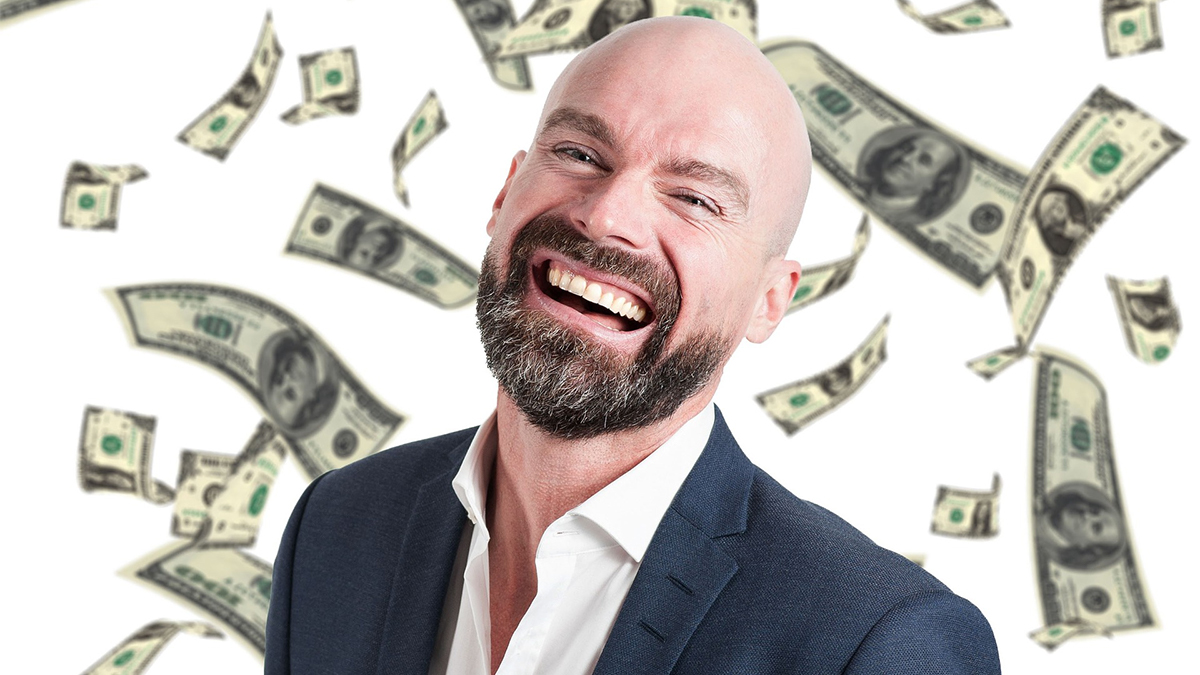
Through 2020, workers faced job cuts, pay cuts and the disastrous effects of decades of health and education cuts—all while business executive pay rose nearly 20 per cent at some of Canada’s largest companies.
The executive ‘salary cuts’ that weren’t
A Canadian Centre For Policy Alternatives study of 1,096 executives finds top businesses—making up nearly a quarter of the Toronto Stock Exchange—increased their executive pay by an average of $171,000 or 17 per cent through 2020.
The study further found that a majority, 52 per cent, of executives who took COVID-19 “salary cuts” offset those salary cuts with bigger bonuses and other end-of-year arrangements.
For example, after announcing plans to lay off 50 per cent of their workers, Air Canada’s executives secured a $5.879 billion government bailout. For goodwill, the company’s executives “voluntarily” opted to reduce their own salaries—but not without trying to access “pandemic mitigation bonuses” of $2 million. After public outcry, the executives “voluntarily returned” that $2-million bonus. But by the year’s end, reports show, the same Air Canada executives took an $11-million bonus to “motivate” themselves.
Bailouts fund bigger bonuses
As with Air Canada, other massive executive bonuses were backstopped by the Trudeau government’s $700-billion corporate bailout package. The CCPA notes Alamos Gold, Gildan Activewear, CCL Industries, Canopy Growth, Canfor and other bailout recipients boosted executive pay—either above 2019 levels or above typical calculations.
The Globe and Mail reported similarly that Suncor Energy Inc. and Canadian Natural Resources Ltd., which received a combined $550-million emergency “wage subsidy”, also boosted their CEO bonuses to $575,000 and $982,686, respectively. Fellow bailout recipient Restaurant Brands International, which owns Tim Hortons, likewise paid its CEO $27.5 million, the highest bonus in Canada.
Pandemic profiteers reward themselves
Other executives on the CCPA list decided to elevate their own pay to celebrate pandemic profits. According to the report, 13 companies reviewed offered their executives “direct pandemic bonuses.” These include financial corporations and mutual funds like Summit Industrial Income, CI Financial Corp, FirstService Financial, mining and manufacturing giants like CanFor, New Flyer Industries and Pan American Silver, and the gas station owner Parkland Fuel.
But larger brands made the list as well.
George Weston Ltd, the parent company of Loblaws, Shoppers Drug Mart, No Frills and others, reported a 9.2 per cent revenue increase in 2020 owing to the work of its “essential” staff—braving COVID-19 outbreaks and deaths. Yet while stressing that any pay increases for these workers would be “temporary”, the company reported over $400 million in profit, $392 million in stock buybacks and paid nearly $4.8 million in director fees to its executives. On top of this, the CCPA report notes, the company’s executives secured a bonus under the company’s “Short-Term Incentive Plan” (STIP). That bonus worked out to about 70 per cent of the executive’s base salary, totalling roughly $3 million.
Similarly, Dollarama reported its sales revenue rose from $828 million to $844.8 million last year. The company’s shareholders certainly gained from a 6.8 per cent dividend increase. Furthermore, Dollarama executives carefully recalculated the company’s returns to guarantee themselves their usual $10.3-million salaries and $1-million bonuses. But Dollarama’s workers saw little of this—continuing to face “inadequate sanitation measures,” occasional layoffs, and “hero pay” cuts.
Likewise, Sienna Senior Living and Chartwell—both scandal-ridden long-term care companies profiting massively from earlier privatization efforts—also shifted their calculations to boost their executive pay. Justifying the decision, Chartwell’s directors graded themselves 100 per cent for “customer satisfaction”, even as inspectors reported dozens of health and safety violations across Chartwell’s facilities.
Two pandemics
While workers were told there was “no money” for wage increases and enhanced health and safety measures, executive compensation was guaranteed without delay. This was a direct transfer of money from workers and the poor to the rich.
Throughout 2020, COVID-19 lowered Canada’s average life expectancy, killed 15,000 people and overwhelmed long-underfunded schools and hospitals. The crisis left hundreds of thousands dependent on paltry unemployment support, many more with frozen wages and a record number insolvent. Meanwhile, these business executives made a killing.
These executives demonstrated they are willing to do whatever is necessary to ensure they’re paid—even if it means slashing wages, undercutting health and safety and robbing the public. We cannot trust these people to run any industries, especially those deemed “essential” to regular people’s lives. This scandal is not a failure of the system; it is the capitalist system working just as intended. The only way to end this legalized corruption is by ending capitalism and putting the economy in the hands of the people who are actually essential—the working class.

